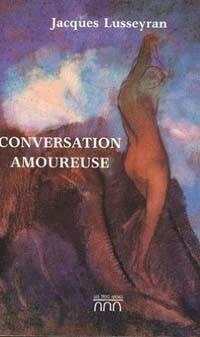Idées et faits (le mail qui fut une lettre de rupture...)
Lettre à un correspondant : alors il faut que je te dise pourquoi discuter avec toi est frustrant : on n'apprend rien. Pourquoi ? Non parce que tu n'aurais rien à m'apprendre, mais parce que tu ne livres que tes jugements, et jamais les faits. J'ai relu un certain nombre de tes mails pour vérifier, et c'est extraordinaire, jamais de fait précis, uniquement tes idées sur les faits.
Or 1) je n'ai aucun moyen de savoir si tes idées sont fiables, ni les idées de qui que ce soit d'ailleurs, je ne peux donc les prendre comme base d'un savoir quelconque 2) je suis en même temps fort étonné que tu puisses construire un échange sur une base aussi peu fiable, sans te rendre compte à quel point c'est vide 3) je me suis éduqué à ne retenir que des faits, donc si on me sert des jugements, je ne retiens rien et n'entends rien, tout simplement.
C'est évidemment le contraire de l'attitude courante. Les gens ne font que répéter les jugements des autres à l'infini. Il me semble qu'un pratiquant devrait en premier lieu démonter ce mécanisme chez lui, et en second lieu ne pas le favoriser chez les autres. Moi aussi je transmets des jugements, mais je les assortis généralement d'un ou plusieurs faits avérés - que personne ne semble en général distinguer des jugements, ce qui est vraiment très inquiétant.
Dans la mesure où tu n'énonces jamais de fait, tu imagines ma perplexité, car en général, on sert aux autres ce dont on se sert soi-même.
Tiens, pour réflexion, ce petit paragraphe sur la CNV (que je n'aime pas du tout, mais enfin, il y a de bonnes choses dedans) :
"Observer les faits
Quand nous décrivons une situation, nous exprimons différentes choses : •des observations objectives (ce qu'on a vu, ce qu'on peut logiquement en déduire sans faire d'hypothèse particulière) •des évaluations (penser en termes de bien ou de mal, qualifier la personne ou la situation etc.) •des interprétations (faire des conclusions qui se basent sur des présupposés) Du point de vue de la CNV, les évaluations et les interprétations sont légitimes et peuvent être exprimées. L'important est de les distinguer des observations objectives et de préciser que c'est ce que nous imaginons. Rosenberg fait référence à Krishnamurti auquel il prête la pensée suivante : « Observer sans évaluer est la plus haute forme de l'intelligence humaine »[18] Il recommande d'éviter d'utiliser des évaluations et des jugements, parce que si notre interlocuteur se sent jugé, il aura tendance à s'investir dans l'autodéfense plutôt que la compréhension[19]. Par ailleurs, les évaluations rendent le monde statique, alors qu'il est en transformation constante. Comme l'explique Wendell Johnson, le langage est un instrument imparfait invitant à parler de stabilité et de normalité, alors que la réalité est changeante et faite de différences[20]. La CNV recommande de parler de faits concrets pour décrire les événements plutôt que d'attribuer des caractéristiques définitives à l'interlocuteur ou au monde ce qui l'enferme mentalement dans une case. Alors qu'en parlant de faits concrets, on ouvre la possibilité de formuler des demandes d'actions précises à réaliser dans le futur. Ex. : "Tu es un fainéant" (jugement) s'oppose à "Cela fait une semaine que tu n'es pas sorti" (fait observable). Obstacle à l'expression des observations : ne pas avoir vraiment l'intention de communiquer, mais être dans un rapport de pouvoir ou de compétition".
Bon, rassure-toi, je me doute bien que tu n'es pas dans un rapport de pouvoir, mais j'ai l'impression que tu n'as pas conscience de ce que tu fais. Donc si je continue dans la ligne de la CNV, je pourrais dire que dans l'échange, j'ai un besoin, c'est qu'on m'expose des faits et non pas des évaluations personnelles, parce que c'est la seule façon dont je peux apprendre. Merci





































/https%3A%2F%2Fassets.over-blog.com%2Ft%2Fcedistic%2Fcamera.png)






